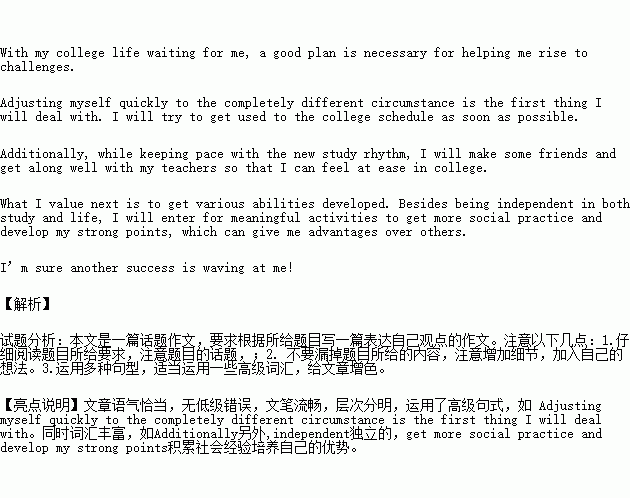题目内容
假如你是李华,即将进入大学学习。请你用英语写一篇100~120词的短文,谈谈你进入大学后的打算。短文应包含以下要点:
1. 如何尽快适应环境;
2. 如何发展各种能力。
注意:短文的开头已给出,不计入总词数。
With my college life waiting for me,
______________________________________________________________________
______________________________________________________________________
______________________________________________________________________
练习册系列答案
 名校课堂系列答案
名校课堂系列答案
相关题目


